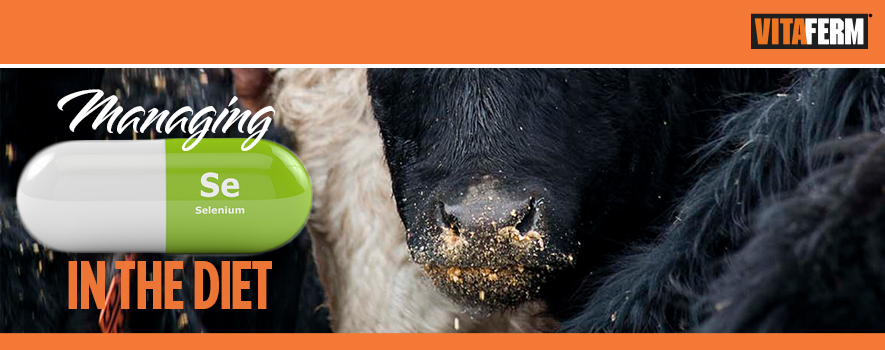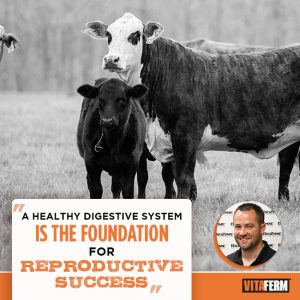
Maintaining accurate levels of Selenium in your cattle diets can be a challenge – you don’t want to feed an excess and you don’t want to feed too little. The need for interaction with other nutrients, deficiency, and toxic effects of Selenium has been intensely studied, making guidelines and feeding recommendations fairly straightforward. The challenge is not knowing all the factors that affect the matching dietary intake to achieve desired results.
The key to managing Selenium is to first identify if a Selenium problem exists and how severe the problem is. Using veterinarians, diagnostic centers, nutritionists, laboratory results and excellent observation will be the foundation to developing a Selenium management program.
Animals that are Selenium deficient will show several signs that are dramatic in nature. The classic signs are White Muscle Disease, retained placentas, poor fertility, abortions and stillbirths. Toxic effects of consuming too much Selenium can be lameness, grooves in horns and hooves along with death. Deficiency is much more prevalent than toxicity, but both are extremely worrisome to the animal’s health. Soil, plant, and tissue or blood samples are often tested to determine the proper level of supplementation. When Selenium levels are outside the norms it becomes a very critical nutrient to manage.
Vitamin E has been shown to interact with Selenium. To a limited extent, Vitamin E can replace Selenium, giving you the opportunity to use multiple approaches to feeding diets that assure proper nutrition. Inclusion of supplemental Vitamin E will assist producers with managing Selenium as well as supplementing the actual mineral.
The FDA has set regulations on the amount of Selenium feed manufactures can add to mixes or rations. Supplements cannot supply more than 3 mg of Selenium to an animal daily. In most cases the upper limit will correct deficiencies in the diet. If extreme deficiency conditions exist, there are other supplemental routines that can be implemented besides feed supplementation.
BioZyme® has developed an extensive suite of supplements to help manage your nutritional programs. BioZyme supplements contain ingredients that provide the proper amount and bioavailability of Selenium covered by FDA regulations when label directions are followed. Feeding VitaFerm® Concept•Aid®, Cattlemen’s Blend™ and Cow-Calf mineral supplements will provide proper amounts of minerals, trace minerals and vitamins and have the advantage of including Amaferm®. Amaferm®️ is a prebiotic designed to enhance digestibility by amplifying the nutrient supply for maximum performance. It is research-proven to increase intake, digestion and absorption.


